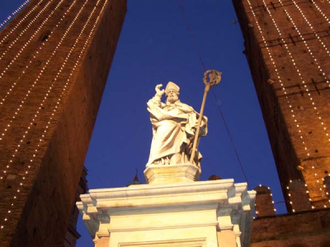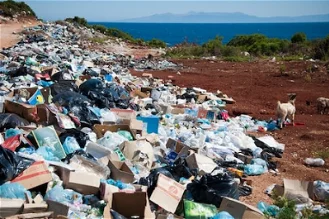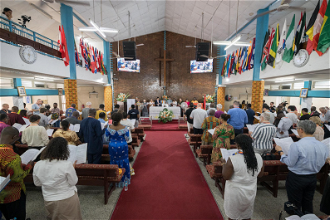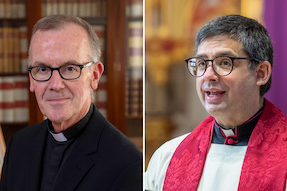Italy: Pope visits Cesena and Bologna

St Petronius, Bologna
Source: VIS/Vatican Radio,
Pope Francis made a pastoral visit to the Emilia-Romagna region in northern Italy on Sunday, with stops in Cesena and then the regional capital, Bologna.
In Cesena the Pope addressed crowds in the Piazza del Popolo, telling them good politics is "neither a servant nor a mistress, but a friend and collaborator." Responsible, brave and prudent at the same time, he explained, healthy politics calls for greater involvement and inclusion of all, leaving no one in the margins. Such politics, he said, does not plunder and pollute natural resources, that are not a bottomless pit but a treasure given us by God, to be used with respect and intelligence.
Good politics, the Pope further explained, harmonises the legitimate aspirations of individuals and groups by holding the rudder firm in the interest of all citizens. This, the Pope said, is the true face of politics, and this is why the social doctrine of the Church considers it a noble form of charity.
The Holy Father urged all, especially the young, to prepare themselves by assuming right from the start, the perspective of the common good, rejecting any form of corruption, even the least. According to him, "corruption is the woodworm of the political vocation" that prevents the growth of civilisation.
He also invited all to demand from "the protagonists of public life, coherence of commitment, preparation, moral uprightness, capacity for initiative, forbearance, patience and determination to address the challenges of today." However, in this they must be realistic, without expecting impossible perfection.
Pope Francis urged that everyone's voice be heard, especially the young who can carry things forward, and the elderly, who with the wisdom of their age can advise young people and young politicians when they mistake.
Noting that in recent years politics seemed to have retreated in the face of aggression and pervasiveness of other forms of power, such as financial and media, Pope Francis called for relaunching good politics and its specific ability to serve the public good by reducing inequalities, promoting the welfare of families with concrete measures, providing a solid framework of rights and duties and making them effective for everyone.
The Pope greeted the sick people present in the Piazza before proceeding to Cesena cathedral where he addressed representatives of the local Church and greeted another group of sick people.
In his Cathedral address, Pope Francis focussed on evangelisation, calling on the clergy to rediscover the joy of being priests during the different stages of their personal and ministerial journey, to be called by the Lord to follow him to bring his word, his pardon, his love, his grace. It is a call that never ceases to amaze us, he said.
To make evangelization effective Pope Francis gives them practical guidelines:
A call to walk in fraternity and unity
Evangelization, the Pope said, is effective to the extent there is sincere collaboration between different ecclesial movements and institutions. A Church walking in fraternity and unity is itself an effective witness to faith. When love of Christ is above all, all legitimate needs will be set aside to meet the needs of the brothers and always in Christ.
A call to be sensitive to the needs of the poor
The scars of Jesus' remain visible even today in so many men and women who live on the margins of society: marked by suffering, discomfort, abandonment and poverty. Caring for their bodily and spiritual needs we are purified and transformed by the mercy of God. Referring to the revolution of charity begun by St Vincent de Paul 400 years ago, the Holy Father said, "now we too are called to carry on this revolution with apostolic zeal knowing that we cannot do anything on our own" without the Lord.
A call to pray and meditate on the Word of God
The Pope said, it is necessary to set aside adequate time for prayer and meditation of the Word of God for prayer gives strength to our mission - as is proved by St Teresa of Calcutta. He explained that the constant encounter with the Lord in prayer becomes indispensable both for priests and for consecrated persons and for pastoral workers who are called to go out to the peripheries. "Our deep encounter with the Lord will help us see Jesus who met the people on the streets of Galilee and to look into the eyes of the other with respect and love and create a revolution of tenderness."
A call to be with the young
Pope Francis said it is the young people who most need to experience this love of Jesus. The young who are a great resource need to be helped to discover the gifts of the Lord and not to fear the challenges of the present times. He encouraged the clergy to meet them, to listen to them, to walk with them, so that they may meet Christ and be receptive to his free message of love.
A call to be with families
Stressing that a Church attentive to young people is a church of the family, the Holy Father encouraged the clergy in their pastoral work towards families. He assured them God's grace, his closeness and prophetic power will help them even when they lack adequate support. "We are called to be witnesses, mediators of this proximity to families."
In conclusion the Holy Father called them to be renewed each day through the Eucharistic celebration and with their encounter with the people of God to whom "we are sent". He exhorted priests, consecrated, deacons, and lay faithful to walk together without being discouraged in the face of difficulties but to be persistent in bearing witness to the Gospel. In their journey he encouraged them to always feel compelled and supported by the power of the Holy Spirit.
After his meetings in Cesena, Pope Francis flew to Bologna where his first appointment was with migrants housed at a regional centre at Via Enrico Mattei.
Addressing around a thousand refugees, Pope Francis said that many who don't know them and are afraid, judge them from far with harshness and coldness. But, he said one needs to see them close up with mercy, for unless we see our neighbour with mercy, we cannot understand his suffering and problems. "In you, as in every stranger who knocks at our door, I see Jesus Christ, who identifies himself with the stranger of every age and condition, accepted or rejected," the Holy Father told the migrants.
The Pope said he was among them because he wanted to carry their eyes in his eyes, their heart in his heart. "I want to carry with me your faces that are asking to be remembered, helped, I'd say "adopted", because in the end you look out for someone who bets on you, gives you confidence and helps you find that future for which you have hoped and arrived here." But alas some couldn't make it, swallowed by the desert or the sea. "People don't remember them," the Pope said, "but God knows their names and welcomes them to Himself." The Holy Father then invited all present to a moment of silence to remember and pray for them.
Reminding the migrants that they are "fighters of hope," the Pope wished that their hope may never turn into delusion, or worse still, despair, thanks to the many who help them. In turn, he urged the migrants to work hard for a welcoming city, and follow the laws of the land.
Regarding the phenomenon of migrants and refugees, the Pope called for vision and great determination to prevent distortion or exploitation which, he said, becomes even more unacceptable because they are committed on the poor. He urged more countries to take up support programs for accepting and opening up humanitarian corridors for refugees in more difficult situations, to spare them unbearable waiting period and lost time. Integration, the Pope said, begins with knowing the story of the other. Noting some underage boys and girls among the migrants, the Holy Father said they particularly need tenderness and protection.
Pope Francis concluded his meeting with migrants, praising the generosity of Bologna and its Church, saying: "The city is not afraid to donate the five loaves and the two fish." "Providence will intervene and everyone will be satisfied," he added.
Before and after his talk, the Holy Father took ample time to meet and greet the migrants individually.
Pope Francis greeted representatives of the world of labour ahead of the Sunday Angelus in the piazza in front of the Basilica of Saint Petronius. In his address Pope Francis emphasised that it is only together that we can come through the present economic crisis and "build the future." Only dialogue, he said, can help us find new and effective answers that can help everyone.
The Holy Father noted that in the region of Bologna, there has been a long experience of cooperation, an experience "that gives birth to the fundamental value of solidarity. Solidarity, he said, must never be bent toward to the logic of financial profit, which would harm the most needy amongst us. "Seeking a more just society," he continued, "is not a dream of the past but a commitment, a work, that today needs everyone" to cooperate.
In particular, the Pope said we must never grow used to the situation of youth unemployment or job loss. People must never be treated merely as statistics.
Speaking to the challenge of fighting poverty, Pope Francis said we cannot truly help the poor without offering them the possibility of finding work and dignity. He pointed to the recent 'Pact for Work,' in which various elements of society, including the Church, made "a common commitment to help one another in the search for permanent answers, not charity." This, he said, "is an important method that I hope can bear the hoped-for fruits."
The economic crisis, the Pope said, "has a European and a global dimension"; and it is also "an ethical, spiritual, and human crisis." And, in strong terms, he says it is rooted in "a betrayal of the common good, on the part of powerful individuals and groups." And so, he said, it is necessary "to take away the centrality of the law of power and assign it to the person and the common good." But in order to do so, he continued, it is necessary to increase opportunities for dignified work.
Following his address, the Holy Father led the faithful in the recitation of the Angelus, and afterwards had lunch with the poor in the Basilica before a meeting with priests, religious, seminarians and deacons in the city cathedral.
He did not deliver a discourse but answered two questions from them.
The diocesan priests asked the Pope how they could grow in evangelical brotherhood with their fellow priests. The Pope said they first need to have a sense of belonging to the body of priests along with their bishop. When a diocesan priest lacks this he becomes a loner and runs the risk of becoming 'infertile'. In this regard, the Pope recalled the transparency of St Paul who talked about things clearly without misleading and had the patience and tolerance for others.
Another trait of a diocesan priest is the figure of pastor among his people. Opposed to this, is the 'clerical pastor' like the Pharisees and Saducees of Jesus'time who live in their own world of theology, thoughts and do's and dont's of the law. The Pope regretted that some priests transform their service into a syndicate office with rigid visiting hours.
To help deepen their brotherhood with their fellow priests, Pope Francis particularly urged the diocesan priests to keep clear of two vices – careerism and gossip. He described priests who make a career of their priestly service a career, as 'climbers'. He described gossip mongers as pests who create discord in the diocesan presbyterial community, defaming their brother priests.
The Pope also received a question from religious men and women asking him how to live the religious life with joy and hope without falling into the trap of the 'psychology of survival'. The Pope said that this pessimistic syndrome seeks security in money, contrary to the spirit of poverty. Religious life, the Pope said, gets corrupt through money, and added that security in religious life does not come from vocations or money but from the 'other side'. Poverty, according to St Ignatius of Loyola, is a mother that gives life, and a wall that defends us from worldliness, the Pope said. The Holy Father also told the religious of the need to touch the wounds of Christ in the suffering body of His people.
Pope Francis concluded his Pastoral Visit to the cities of Cesena and Bologna with a Solemn Mass in the Dall'Ara Stadium of Bologna.
In his homily, for what he called 'the first Sunday of the Word,' Pope Francis reflected on the Word of God, which makes our hearts burn within us, because it makes us feel loved and consoled by the Lord.





















